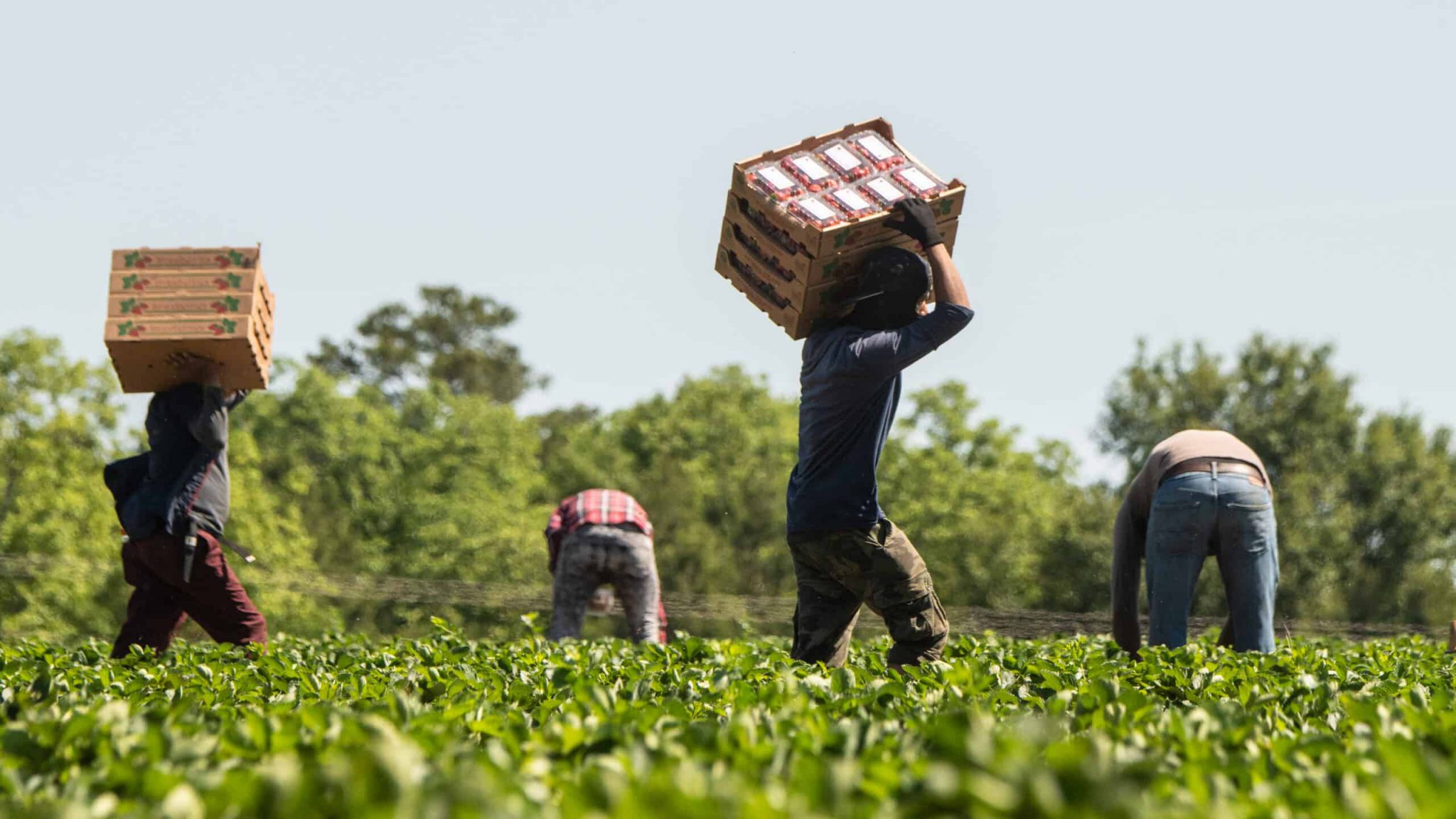In today’s news and commentary, service workers at Charlotte Douglas International Airport go on strike, the NLRB rules that Google is a joint employer of a group of unionized contract workers, and farm industry groups petition President-elect Trump to spare their workers from deportation.
Last Friday, service workers at Charlotte Douglas International Airport voted to go on a 24-hour strike. The strike, which includes airline escorts, cabin cleaners, and other essential airport workers, commenced this morning. Workers are demanding an end to poverty wages and protections and respect on the job during the holiday travel season. The workers, represented by Service Employees International Union (SEIU), earn as little as $12.50 per hour – which is not considered a livable wage for a single person without children in Charlotte. Airport officials predict that this week will be the busiest on record, with nearly 1.02 million passengers departing Charlotte between last Thursday and the Monday after Thanksgiving. ABM and Prospect Airport Services announced they would take steps to minimize disruptions.
In a 2-1 ruling last Friday, the NLRB held that Google is a joint employer of a group of contract staffers. The staffers, directly employed by Accenture, voted 26-2 to join the Alphabet Workers Union last November. Last week’s ruling bolsters the position that Google is obligated to negotiate with the Union. The company is already fighting to overturn another NLRB ruling obligating the to negotiate with a union representing YouTube contract staff. These rulings rely on a finding that Google has enough control over the workers and their duties to require the company to share responsibilities under federal labor law.
Farm industry groups are preparing for the mass deportations President-elect Trump promised on the campaign trail. The groups are lobbying the incoming administration to commit to exempting their workers. According to the departments of Labor and Agriculture, approximately 1 million farmworkers, including dairy and meatpacking workers, lack legal status. This is about half of all farmworkers in the United States. The first Trump administration promised not to target food system workers, but went on to conduct raids at poultry and produce packing facilities. In California, where half the produce consumed in the US is grown, farmers overwhelmingly supported Trump’s candidacy. Many say they expect the incoming administration to support their workforce through expansion of legalization programs, streamlining the H-2A temporary guest visas, or simply focusing enforcement elsewhere. A spokesperson for the transition team made no indications that this would be the strategy, instead reiterating the promise to “deport migrant criminals and restore our economic greatness.” Agriculture and related industries contribute about $1.5 trillion – or 5.6%- to US GDP.







Daily News & Commentary
Start your day with our roundup of the latest labor developments. See all
February 20
An analysis of the Board's decisions since regaining a quorum; 5th Circuit dissent criticizes Wright Line, Thryv.
February 19
Union membership increases slightly; Washington farmworker bill fails to make it out of committee; and unions in Argentina are on strike protesting President Milei’s labor reform bill.
February 18
A ruling against forced labor in CO prisons; business coalition lacks standing to challenge captive audience ban; labor unions to participate in rent strike in MN
February 17
San Francisco teachers’ strike ends; EEOC releases new guidance on telework; NFL must litigate discrimination and retaliation claims.
February 16
BLS releases jobs data; ILO hosts conference on child labor.
February 15
The Office of Personnel Management directs federal agencies to terminate their collective bargaining agreements, and Indian farmworkers engage in a one-day strike to protest a trade deal with the United States.